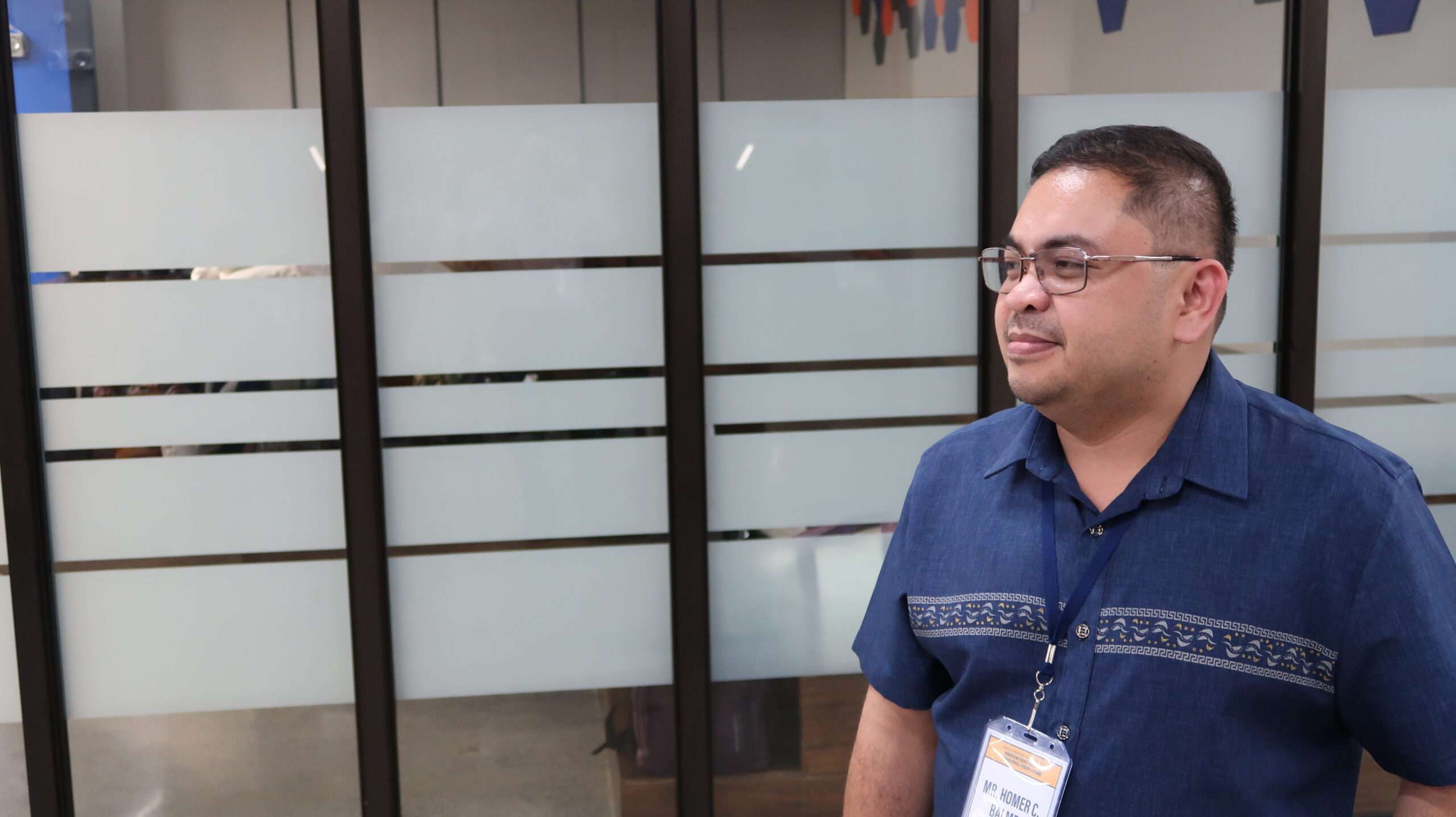
A Conversation with Mr. Homer C. Balmes, Whole Person Education Academician
The Whole Person Education Academy (WPEA) 2024, held at Ateneo de Manila University in October 2024, brought together 33 educators from 12 higher education institutions across India, Indonesia, Laos, Myanmar, and the Philippines for an intensive onsite program on students’ holistic development. Mr. Homer C. Balmes, dean of students at Trinity University of Asia (TUA) in the Philippines, reflects on his journey, his experience at WPEA 2024, and how he plans to bring the academy’s insights to life at his home institution.
- Please describe briefly your upbringing and education and how you started working at Trinity University of Asia.
I grew up in Quezon Province which is 4-5 hours from Manila Metro. From a young age I had been more mature and independent than my age and learned to do things by myself. When I went to college at TUA—St. Luke’s College of Nursing in Quezon City—living away from home was no problem for me and I began in no time to get involved and active in various issues, chiefly public health ones.
I graduated from TUA in 2008, with a Bachelor of Science in Nursing. Upon graduation, Dr. Luna, then dean of nursing and now president of TUA, invited me to join the teaching staff in the nursing school, which I did. I later obtained a master’s in community development at the University of the Philippines, and am currently pursuing my doctorate in social development. In 2012, the Student Affairs Center opened its doors to me, which I joined as a student development and training specialist.
I went back teaching to the college of nursing in 2019 to help in community health program initiatives and so as to cope with the increasing enrolment. But the pandemic came, and I was asked to return to the Student Affairs Center, serving in my current post as Dean of Students.
I am currently working on my doctoral dissertation in social development, focusing on grounding safe campus initiative in higher education institutions including disaster risk reduction and management, peace, gender, etc.
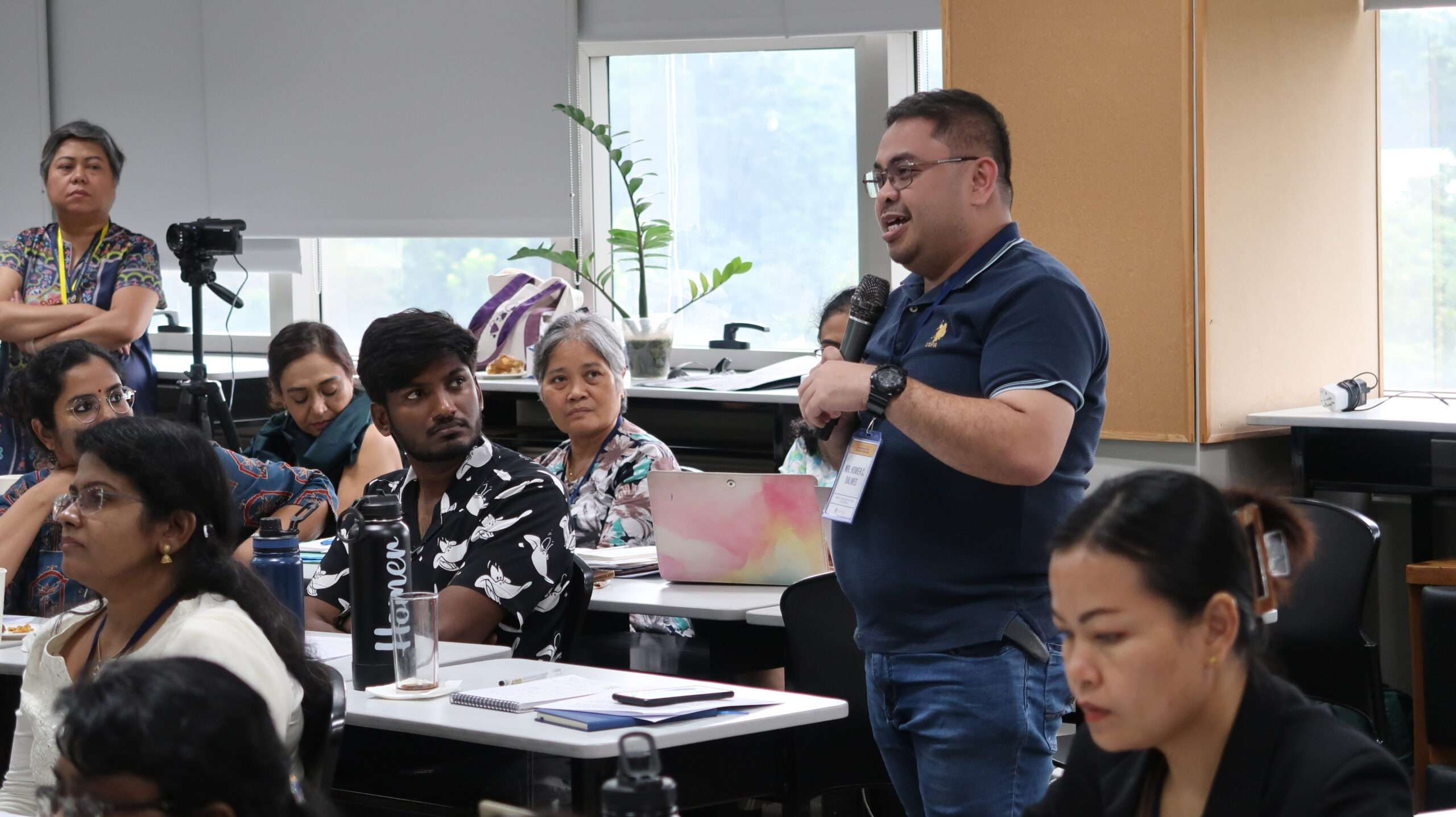
- What do you think is most needed for the students these days?
From my years of serving the student population as a faculty and as a student affairs officer, I have come to think that more patience and understanding should be given to the students today. We need to understand how the young men and women make sense of their surroundings, their peer and the world in their formative years. As a development practitioner, I take a very participatory and consultative approach and often talk to students at great lengths to understand what they think and how they see things.
Overall, I think the students I came across are very intelligent but also very pragmatic. They are not just satisfied with knowledge or theory learned from the books or from their teachers in a traditional classroom environment. They want to try things out and see things happen in the real world, in a way that matters to them. Hence, experiential learning is very important in today’s higher education curriculum.
- How did you come to learn about the United Board?
The United Board has been a partner of TUA and hence no stranger to its academics and staff. But my first real experience with its programs came in 2014 when I joined a peace-building program in Davao supported by the United Board. It was an immersive program in which I had ample opportunities to engage with the local community. Since then I have got to know the United Board, its mission and its staff, increasingly better. My wife, who worked in the extension office of the university, was also engaged in projects supported by the United Board. With their dedicated efforts to provide development opportunities to faculty and administrators in Asian higher education institutions, it’s natural that the path of the United Board and mine crossed. I am truly grateful for the opportunities.
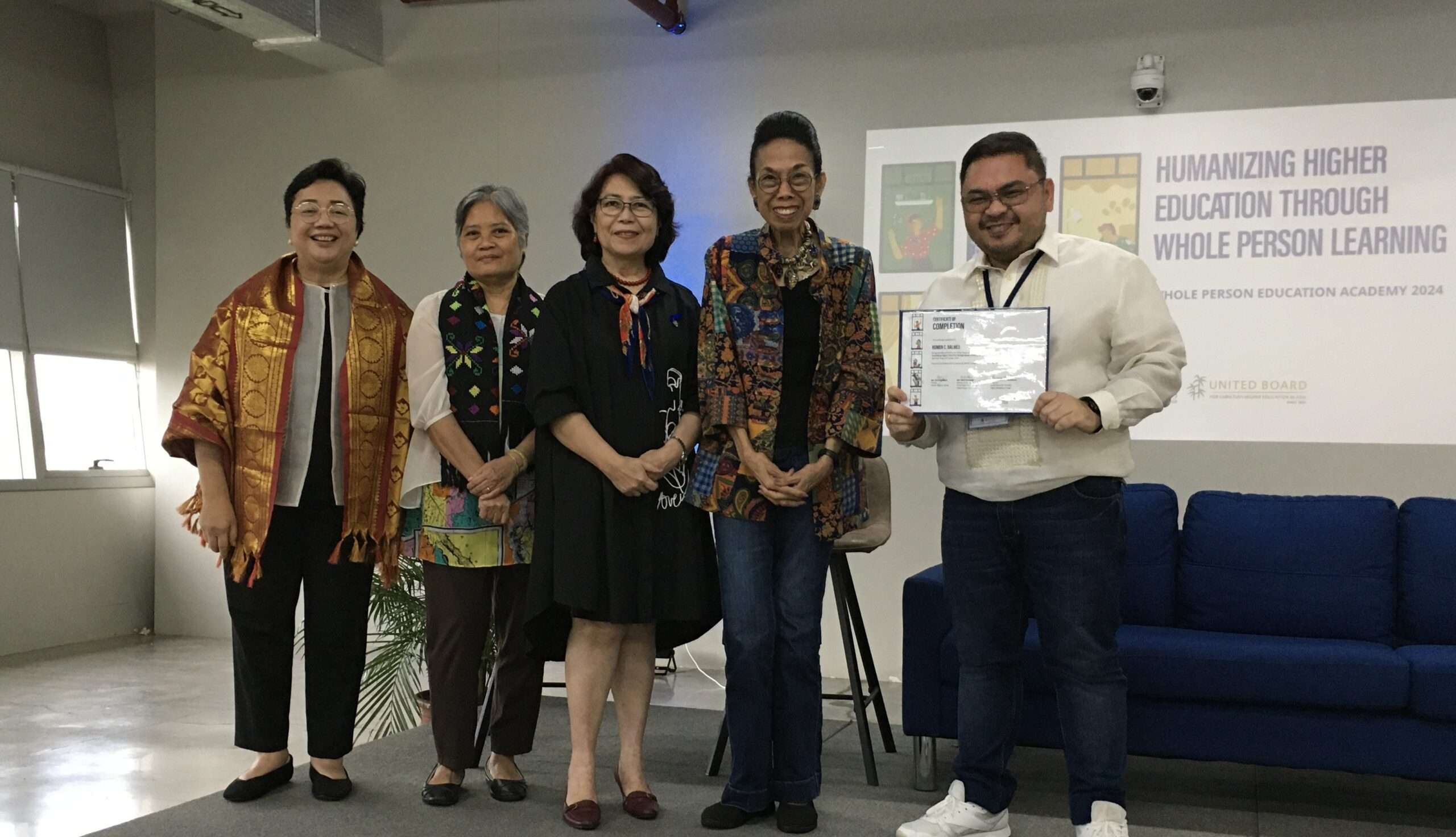
- How is your experience at WPEA 2024?
I came to the train-the-trainers part of WPEA 2024 with the aim to acquire the relevant training in designing more engaging, dynamic and engaging curricula grounded in whole person pedagogy. I was very impressed with the quality of the lecturers and speakers whose passions about education and their subjects came through so strongly. It was a real feast for us, and we were comprehensively and expertly coached in areas ranging from, among others, spirituality, leading with discernment, to humanizing artificial intelligence.
My other aim, which was also largely accomplished, was to build a network with other educational professionals. The one-week residential program has enabled meaningful dialogues among the participants and mutual understanding of the theory and practice of whole person education. I have made many good friends. The delegates from the participating institutions usually came in three. I was the only one from TUA. St. Stephen’s College had two—Mr. Kevin Stephen and Dr. Alphy Geever. So we sometimes paired up for some group work or assignments, and so became even closer.
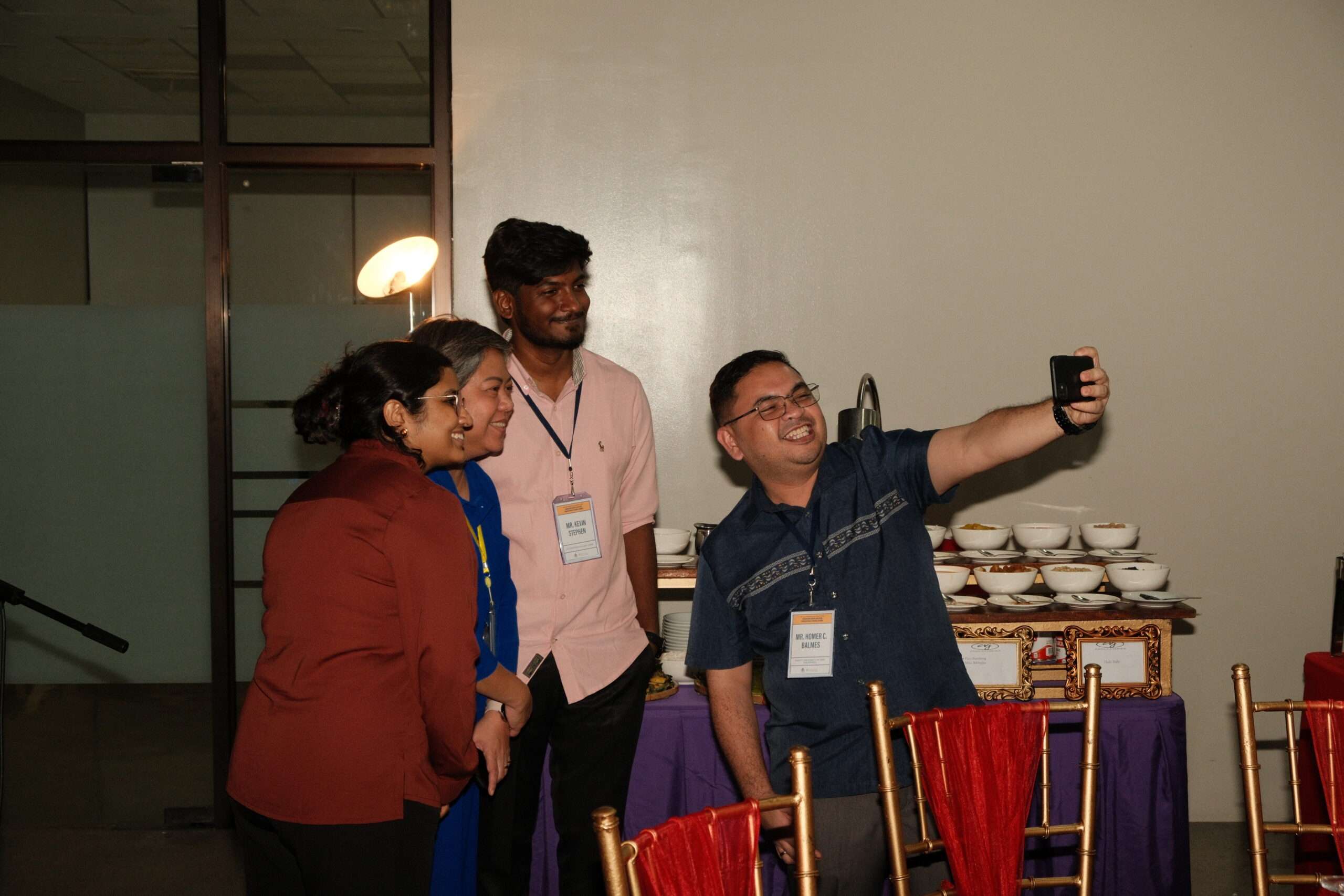
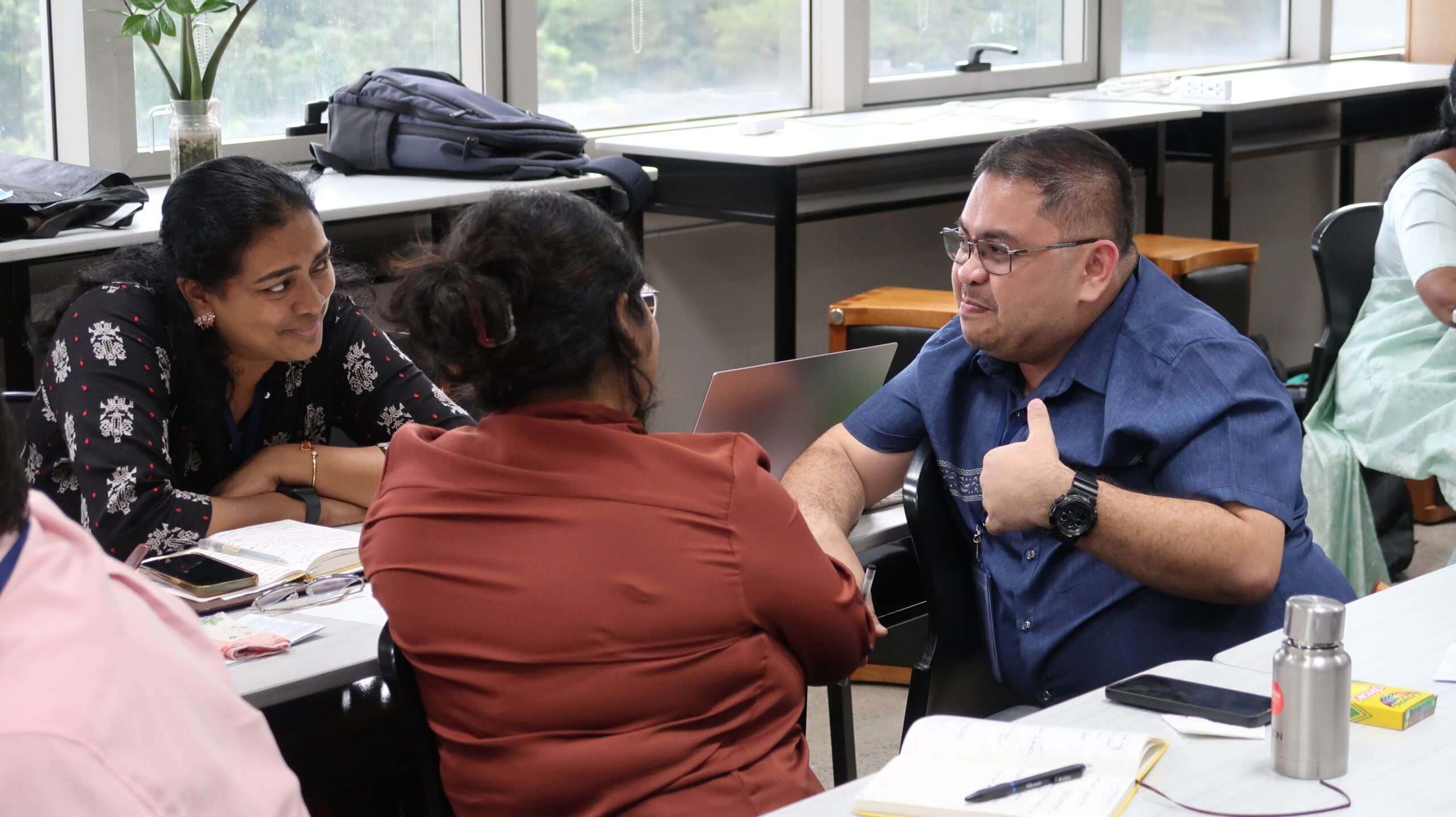
- How would you put knowledge gained at WPEA 2024 to practice at TUA?
I must say that my participation in WPEA 2024 came in the most opportune time. My university has commenced its strategic planning exercise for the five-year period 2025-2030, and I was involved from the student affairs perspective for which we are trying to frame a more formative approach to student development.
WPEA 2024 has helped me tune in to some novel and nuanced ideas about students’ whole development and thresh out the implementation strategies. Soon after I returned to TUA, I began working on a plan to effectively implement and activate the whole person education experience with the view to institutionalizing whole person education at TUA, or at least as far as student affairs and services are concerned. I will soon present the plan to the university management to move things forward in the strategic planning exercise.
- What do you do when you are not working?
I am a father of two boys—a three-year-old and a six-year-old, and so naturally I’d like to spend as much time as I could with them when I am not working. I also help with some foundations as my wife is a social worker and very passionate about empowering people and communities in need. She had worked with a lot of projects supported by the United Board’s faculty development grant which touches upon how students approach issues like the environment, spirituality and social responsibility in their educational experiences. Needless to say, I am also very much interested in those issues and there have been no few exchanges between us. I guess it’s no exaggeration to say that my work-life balance hinges on a concern for the development of the young, and serving the communities.
This article also appears in the June 2025 issue of Horizons at: https://unitedboard.org/about-us/resources/publications/
